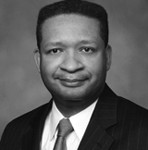It is a measure of Chris Christie’s aura that serious people think his effusive praise of Barack Obama in the hours after Hurricane Sandy might have reelected the president. The likelier truth is that there are precious few undecided voters in Ohio and Virginia who know the name of the New Jersey governor, much less value his imprimatur as the tipping point in their electoral decision-making process. But Christie’s force of personality is one of the few authentic magnetic fields in politics that don’t bear the name Clinton or Obama, which guarantees disproportionate, even illogical, levels of attention when he makes moves.
That bravura suggests why Christie remains such an intriguing path for Republicans contemplating 2016. To be sure, there are mounting doubts about whether he is the one. The narrative that Christie is not a team player is gaining traction with Republican activists, who were confounded by the sound-bites of a Republican hero lavishing praise on the arch-enemy. The professional operative class that assesses political personalities for signs of trouble links his post-Sandy comments with a keynote address that seemed oblivious to the party talking points in Tampa, and they see a worrisome absence of discipline. The ones with a bent for pop psychology see brittleness masked as self-regard, and suggest that Christie must have been partly motivated by a fear of how difficult his reelection might be in a state Obama dominated, or even a burning fuse based on not being given a right of first refusal on the vice presidential nomination.
But the critiques on Christie are a reflection of the odd waters of modern politics. If Christie’s press conference seemed too much, it is largely because such post-disaster events are so typically sanitized with platitudes: In other words, public figures shrinking under the glare and resorting to a contrived, bland insincerity. The consensus that Christie underperformed in Tampa stems from a mindset that success on such stages is measured either by a cascade of glossy but insubstantial poetry or at the other end of the scale, a hard-edged partisanship. Surely, a politico with Christie’s game shouldn’t have spent his moment describing the minutiae of gubernatorial leadership; surely, if he outlined the national threat, it should have been in the form of a prolonged lease on the White House by the other party not in the possibility that both parties might be overwhelmed by the demands of the historic moment.
My own guess is that a substantial number of Americans would be unsettled that there is a political class that sees Christie as unsettling. That’s not to over-hype Christie as a pop hero who says what he means, or means what he says, etc. In fact, Christie’s persona is very likely informed by his instincts about the anxieties of a public weary of political combat. There is a goldmine in a national figure articulating an interest that is elevated above party and ideology.
But whatever motivates him, the possibility exists that a Christie presidential candidacy might be a thrilling kind of wild-card, one that mimics neither Mitt Romney’s caution nor Barack Obama’s 2008 vagueness dressed up as audacity.
To fully grasp the Christie potential, you have to examine the full degrees of difference between the governor and the men he would be succeeding as nominee and president. Romney’s calculation in the Republican primaries was that he needed to convey the opposite of improvisation, instead, that he needed to be the most electable conservative in the field. That meant shaving off the inconvenient moderateness in his record and giving his base the deference of never moving an inch from it, especially not on the issues that most drive their passions. Obama, in turn, broke through in decidedly more provocative fashion, by ingeniously linking his campaign to the country’s sense of its own fulfillment, but by designing such a bold sketch of himself, he avoided the imperative of spelling out with much clarity the means by which his boldness would be translated into policy.
It is possible to imagine that Christie would eventually strain the limits of the public’s appreciation for candor. Equally possible, the public mood in 2016 might be less urgent than it was in the fall of 2011, when Christie came close to running, and when less than a fifth of the country thought our present track was the right one (the number has rebounded to the upper forties). In either scenario, Christie might seem too demanding. But it is very hard to imagine that if Christie actually became president, he would not have a charge from the electorate to jolt the system in a way that his predecessor didn’t accomplish and didn’t try.
No modern politician can win the national leadership of his party by running against that party’s sensibilities, or even by winning the reputation of being on such an errand. The promise of Christie, though, is that the strength he conveys would ensure that his moves toward the center were not out of timidity, and that there is a toughness of purpose in him that would spare him the phony toughness of tackling the vulnerable. And it is worth wondering if Christie could make a case that conservatives need to hear—that rebuilding a dynamic, upwardly mobile culture will take some measure of government, albeit the smart, fiscally disciplined kind.
The last two presidents were compromised by events that diverted their terms in ways they couldn’t see: for George W. Bush, a quagmire in Iraq, for Barack Obama, an economy that was too sluggish to permit the spending or experimentation his base had fantasized about. Both learned how to make their opponent’s weaknesses more relevant than their own, but not how to master events. There will eventually be a president who does learn the trick of bending events to his will. That promise explains, why, for all his impolitic ways, Christie isn’t about to fade away.










Leave a Reply